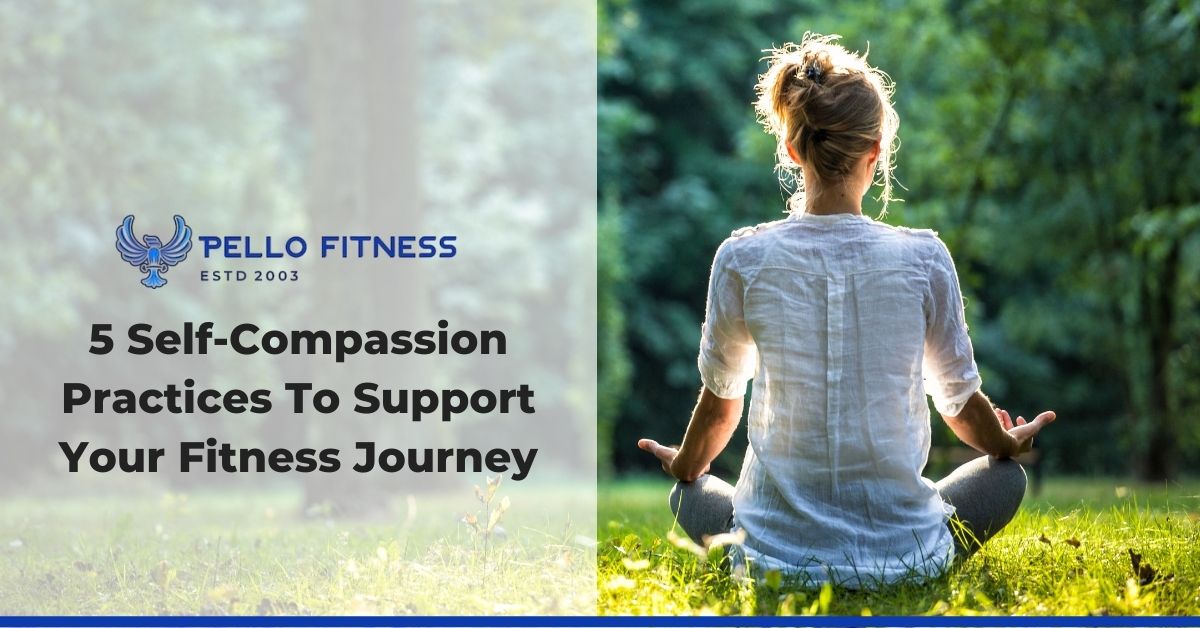|
The fitness world can sometimes be a pretty tricky place to spend time. That hustle and grind mentality is punishing for your body, your general health and wellbeing, and for some - even relationships. But beyond the comparisons and anxiety, there's scope to use self-compassion to not only support your fitness journey but to enhance and enrich it. Self-compassion is something they can naturally do for some people, but it's a learned skill for many women. The Mindful Path To Self Compassion, published by Christopher Germer, a Harvard psychologist, identifies five main ways to introduce self-compassion practices into your life.
1. Physical Self-CompassionThis is about using physical stimulus to be kind to yourself. It could be eating something nourishing and taking the time to prepare an extraordinary meal. It could be going to bed on time and getting enough sleep to restore your body after exercise. It may be merely doing exercise that you enjoy and isn't physically taxing in the name of performance or competitiveness. It may be switching out your grueling 10km run for a walk or treating yourself to a massage. 2. Mental Self-CompassionThis is about how you think about yourself. When you've used your fitness journey to alter your perception of yourself, it can lead to some pretty profound identity shifts. Maybe you're facing a challenge now, and you think you need to spend some time thinking about how you might advise a good friend who was going through the same experience. Seeing a problem or a challenge through this compassionate friend's lens can give you a dimension for self-kindness that is often forgotten for yourself. 3. Emotional Self-CompassionOur fitness journey can be emotional in itself. We often confront long-term issues around our identity or negative experiences we've endured. This may be best explored in writing, through the practice of journaling, or a letter. You might focus on a negative experience you had that brought you to your fitness journey and acknowledge the negative feelings. This can be a deeply insightful experience and can help tap into that "big why" that makes fitness motivation almost entirely redundant. It's powerful stuff. 4. Relational Self-CompassionThis is about our interactions with ourselves and others. It might relate to how you speak to yourself during a particularly tough workout or something as ordinary as how you accept (or refuse) compliments from other people. How you relate to others reflects your relationship with yourself. There is often a lot of overlap between these five areas, and relational is one area that tends to color all our other practices. 5. Spiritual Self-CompassionThis may be a religious practice for some people, but it certainly doesn't have to be. Everyone could access this spiritual compassion through intentionally practicing mindfulness. Mindfulness is defined as the non-judgemental observation of your internal experience. That includes thoughts, feelings, and behaviors without trying to change or judge yourself for them. The Calm and the Headspace apps are great places to get started if you're unsure how to discover your spiritual self-compassion. These simple, guided meditations can help you accept yourself fully and compassionately - and then extend the same compassion to others. Benefits Of Self CompassionThe relationship between self-compassion and good physical health is well documented. It can aid motivation, promote the conditions for weight loss, and eliminate that black and white thinking that we can all be guilty of. Procrastination in perfectionism can be one of the most noticeable ways you don't practice compassion towards yourself. You can perpetuate a belief that until conditions are perfect, you should delay starting a health and fitness regime - but through the practices, you might identify that the ideal conditions are a myth and allow yourself to take imperfect action. ConclusionThese five areas of self-compassion practice will boost your progress towards your fitness goals. It gives you the capacity to see how movement can help you tap into your body and get out of your head; action beats anxiety every time. It gives you the insight to notice how you think about fitness and your health experiences.
It can also improve your relationships, and those people around you will better understand why your health and fitness are a priority, especially if you're able to articulate your emotional experiences to them, and that can secure their support and practical help. It can even help you to move mindfully and intentionally in the workout itself.
0 Comments
Leave a Reply. |
AuthorZach Pello Archives
June 2023
Categories |
Services |
Company |
|
|
© COPYRIGHT 2018. ALL RIGHTS RESERVED.
|
Website Design by My Personal Trainer Website
|


 RSS Feed
RSS Feed